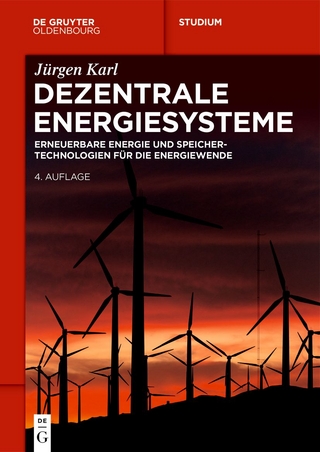
Industrial Biomimetics
Pan Stanford Publishing Pte Ltd (Verlag)
978-981-4800-07-5 (ISBN)
Biomimetics is an innovative paradigm shift based on biodiversity for sustainability. Biodiversity is not only the result of evolutionary adaption but also the optimized solution of an epic combinatorial chemistry for sustainability, because the diversity has been acquired by biological processes and technology, including production processes, operating principles, and control systems, all of which differ from human technology. In the recent decades, biomimetics has gained a great deal of industrial interest because of its unique solutions for engineering problems.
In this book, researchers have contributed cutting-edge results from the viewpoint of two types of industrial applications of biomimetics. The first type starts with engineering tasks to solve an engineering problem using biomimetics, while the other starts with the knowledge of biology and its application to engineering fields. This book discusses both approaches. Edited by Profs. Masatsugu Shimomura and Akihiro Miyauchi, two prominent nanotechnology researchers, this book will appeal to advanced undergraduate- and graduate-level students of biology, chemistry, physics, and engineering and to researchers working in the areas of mechanics, optical devices, glue materials, sensor devices, and SEM observation of living matter.
Akihiro Miyauchi is a nanotechnology researcher currently working as professor at Tokyo Medical and Dental University, Tokyo, Japan. He received his bachelor’s in theoretical physics from the Tokyo University of Science and his master’s and PhD from the Tokyo Institute of Technology. He was a visiting scientist at the Massachusetts Institute of Technology (MIT) in 1995–1996 and chief researcher at Hitachi Ltd. for 10 years, where he led four national projects on nanoimprinting and biomimetics. Prof. Miyauchi is session chair of the International Microprocesses and Nanotechnology Conference and a member of the International Conference on Nanoimprint and has been an expert advisor for the Ministry of Education and New Energy and Industrial Technology Development Organization (NEDO), Japan. He has developed high-speed integrated circuits for optical communication using selective CVD, cell cultivation plates for regenerative medical, fluid control machines, and fuel cells. His current research involves biomimetics for fluid control and antibiofouling using informatics. Masatsugu Shimomura graduated from Kyushu University, Japan, after which he worked as assistant professor in the field of biomimetic chemistry in Prof. Toyoki Kunitake’s laboratory. He moved to the Tokyo University of Agriculture and Technology, Japan, as associate professor, where he researched polymeric Langmuir–Blodgett films. Then he moved to Hokkaido University, Japan, for starting a new laboratory to work on bottom-up nanotechnology based on self-organization and biomimetics. Concurrently, he held the post of principle investigator at RIKEN, Japan, where he developed self-organized honeycomb-patterned polymer films in collaboration with many industrial companies. After moving to Tohoku University, Japan, Prof. Shimomura organized a national research project on engineering neobiomimetics and started an educational program on biomimetics at the Chitose Institute of Science and Technology, Japan. He has also worked with Prof. Helmut Ringsdorf of the University of Mainz, Germany, and Prof. Erich Sackmann of TU-Munich, Germany.
3D modeling of shark skin and prototype diffuser for fluid control. Friction control surfaces in nature ~Analysis of Firebrat Scales. Biomechnics and biomimetics I flying and swimming. Shape-tunable wrinkles can switch frictional properties. Self-lubricating Organogels : SLUGs. Bioinspired materials for thermal management applications. Strange wing folding in a rove beetle. Biotemplating Process for Electromagnetic Materials. The application of the structural color. Moth-eye type anti-reflection Films. Transparent superhydrophobic film created through biomimetics of lotus leaf and moth eye structures. Adhesion under Wet Conditions Inspired by Marine Sessile Organisms. Functional Analysis of Mechanical Design of the Cricket Wind-Receptor Hair. Echolocation of bats and dolphins and its application. The “NanoSuit®” preserves wet/living organisms for the observation of the high resolution in a scanning electron microscope.
| Erscheinungsdatum | 01.04.2019 |
|---|---|
| Zusatzinfo | 8 Tables, black and white; 7 Illustrations, color; 144 Illustrations, black and white |
| Verlagsort | Singapore |
| Sprache | englisch |
| Maße | 152 x 229 mm |
| Gewicht | 730 g |
| Themenwelt | Naturwissenschaften ► Biologie |
| Naturwissenschaften ► Chemie ► Technische Chemie | |
| Technik ► Maschinenbau | |
| Technik ► Umwelttechnik / Biotechnologie | |
| ISBN-10 | 981-4800-07-4 / 9814800074 |
| ISBN-13 | 978-981-4800-07-5 / 9789814800075 |
| Zustand | Neuware |
| Haben Sie eine Frage zum Produkt? |
aus dem Bereich


